Sept. 4, 2025
Thesaurus : Doctrine

► Full Reference: , J.-B. Barbièri, "Les juges du droit des entreprises en difficulté et les obligations de compliance (Judges of Insolvency Law and Compliance Obligations), in M.-A. Frison-Roche (ed.), L'Obligation de Compliance, Journal of Regulation & Compliance (JoRC) and Éditions Lefebvre - Dalloz, coll. "Régulations & Compliance", 2025, forthcoming.
____
📕read a general presentation of the book, L'Obligation de Compliance, in which this contribution is published
____
► English summary of this contribution (done by the Journal of Regulation & Compliance - JoRC): Describing at first sight the intersection of Compliance and Insolvency procedures as the "marriage of the carp and the rabbit", the Author shows that the logic is in many ways the same, particularly in terms of the role played by the Judge, since it is always a question of the State delegating Monumental Goals, with Insolvency procedures giving concrete expression to the desire to save a company, jobs, an industry, a region, etc., in what is always a "public interest". In his/her office, the insolvency judge is confronted with compliance clauses, relating to commitments, or information, or organising monitoring.
The author begins by examining the cases in which the insolvency judge is confronted with the principle of primacy of the insolvency proceedings over this compliance contractual organisation, either under current contracts, which may contain compliance obligations, in particular because audits and controls will have been strengthened or automatic termination will be provided for (which would then be deactivated?), or because the nullity of the suspect period comes into play, because the compliance clauses are often unbalanced.
The second part examines the hypothesis that compliance techniques will support insolvency proceedings themselves and the purpose they serve. Indeed, because they are preventive in nature, contractual compliance mechanisms can also prevent failures, by means of audit and monitoring clauses and the introduction of reporting, if necessary under the supervision of the Judge, associated with conciliation mechanisms.
What is more, they should be used to restructure companies in difficulty. The plan, which can be imposed on creditors, must open up the range of instruments, and could perhaps be articulated at this class of parties, which would only be made up of creditors benefiting from compliance clauses, if we consider that they constitute a "sufficient community of economic interest". They could then also be delegated the task of monitoring the survival of the company, which is the main goal served by the plan. In the case of a disposal plan, an offer including compliance undertakings should not be favoured, since the law expressly states that the sole purpose of such a plan is to ensure the maintenance of activities and to clear the past. But time will tell whether the judge will go beyond this.
________

Sept. 9, 2024
Organization of scientific events
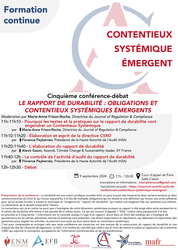
► Full Reference: M.-A. Frison-Roche, Scientific direction of the conference Le rapport de durabilité : obligation et Contentieux Systémiques Émergents (The Sustainability Report: Emerging Systemic Obligations and Litigation), in cycle of conference-debates "Contentieux Systémique Émergent" ("Emerging Systemic Litigation"), organised on the initiative of the Cour d'appel de Paris (Paris Cour of Appeal), with the Cour de cassation (French Court of cassation), the Cour d'appel de Versailles (Versailles Court of Appeal), the École nationale de la magistrature - ENM (French National School for the Judiciary) and the École de formation des barreaux du ressort de la Cour d'appel de Paris - EFB (Paris Bar School) and MAFR, September 19, 2024, 11h-12h30, Cour d'appel de Paris, Cassin courtroom
____
► Presentation of the conférence: Sustainability is a new legal concept, the lineaments of which can be found in certain sectors and branches of Law, and which today has both multiple resulting obligations and a definition that is sufficiently unified to allow it to be grasped through the technique and the requirement of the "Sustainability Report", which translates a requirement linked to the systems themselves. The dual materiality mechanism illustrates this.
The Litigation that will ensue shall be imbued with this systemic dimension, since this report was required from this perspective, and the notion of Sustainability itself was conceived in the same way. What is commonly referred to as "ESG" reflects this perspective, which is both structural and long-term: Information is central here, since it is a Report, anchored in the new conception of Corporate Law that is imbued with Governance, where internal and external stakeholders are present. The various Supervisors and Regulators, who go beyond supervising professionals to regulate activities, are also bound to have a role to play in this Emerging Systemic Litigation.
In order to understand and anticipate this, this conference is built around an analysis of the construction of the Sustainability Report and an analysis of the role of the Regulatory and Supervisory Authority, the French Audit Authority, the Haute Autorité de l'Audit - H2A. These analyses are carried out with a view to the Systemic Litigation that will arise from these new requirements and practices, in correlation with Litigation linked to other fields of Systemic Litigation such as Vigilance field.
____
🧮Programme of this event:
Fith conference-debate
LE RAPPORT DE DURABILITÉ : OBLIGATIONS ET CONTENTIEUX SYSTÉMIQUES ÉMERGENTS
(THE SUSTAINABILITY REPORT: EMERGING SYSTEMIC OBLIGATIONS AND LITIGATION)
Paris Court of Appeal, Cassin courtroom
🕰️11am.-11.10am. 🎤Pourquoi les textes et la pratiques sur le rapport de durabilité vont engendrer un Contentieux Systémique (Why the texts and practices on sustainability reporting will give rise to Systemic Litigation), by 🕴️Marie-Anne Frison-Roche, Professor of Regulatory Law and Compliance Law, Director of the Journal of Regulation & Compliance (JoRC)
➡️read the presentation of this speech
🕰️11.10am.-11.20am. 🎤Élaboration et esprit de la directive CSRD (Elaboration and spirit of the CSRD), by 🕴️Florence Peybernès, President of the Haute Autorité de l'Audit - H2A (French High Audit Authority)
🕰️11.20am.-11.40am. 🎤Comment construire un rapport de durabilité ? (How to build a sustainability report?), by 🕴️Alexis Gazzo, Partner, Climate Change & Sustainability leader, EY France
🕰️11.40am.-12pm. 🎤Le contrôle de l'activité d'audit du rapport de durabilité (The control of the audit of the sustainability report), by 🕴️Florence Peybernès, President of the Haute Autorité de l'Audit - H2A (French High Audit Authority)
🕰️12pm.-12.30pm. Debate
____
🔴Registrations and information requests can be sent to: inscriptionscse@gmail.com
🔴For the attorneys, registrations have to be sent to the following address: https://evenium.events/cycle-de-conferences-contentieux-systemique-emergent/
⚠️The conference-debates are held in person only, in the Cour d’appel de Paris (Paris Court of Appeal).
________
Updated: Sept. 1, 2024 (Initial publication: )
Thesaurus : Doctrine
► Référence complète : M. Jehl, "The duty of vigilance in the face of practical challenges: audits, contractual assurances, and mediation", IBLJ, 2024, n°3/4, pp. 425-435
____
► Résumé de l'article :
____
🦉Cet article est accessible en texte intégral pour les personnes inscrites aux enseignements de la Professeure Marie-Anne Frison-Roche
________
March 7, 2024
Conferences
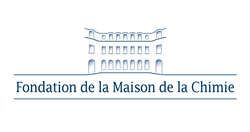
🌐follow Marie-Anne Frison-Roche on LinkedIn
🌐subscribe to the Newsletter MAFR Regulation, Compliance, Law
____
► Full Reference: M.-A. Frison-Roche, "L’enjeu de la confidentialité des avis juridiques internes au regard des « Buts Monumentaux » de la Compliance" ("The issue of confidentiality of in-house legal opinions with regard to the "Monumental Goals" of Compliance"), in L’instauration d’un Legal Privilege à la française. Le temps de l’action au service de la souveraineté et de la compétitivité de nos entreprises, Association française des juristes d'entreprise (AFJE), Association nationale des juristes de banque (ANJB) et Cercle Montesquieu, March 7, 2024, Maison de la Chimie, 28 rue Saint Dominique Paris
____
📝On the same topic, read the article of Marie-Anne Frison-Roche "La compliance, socle de la confidentialité nécessaire des avis juridiques élaborés en entreprise" ("Compliance, the cornerstone of the confidentiality required for in-house legal opinions")
________

Updated: Feb. 5, 2022 (Initial publication: Oct. 10, 2021)
Publications

 ► Full Reference: Frison-Roche, M.-A., Duty of Vigilance, Whistleblowing and International Competitiveness, Working Paper, September 2021.
► Full Reference: Frison-Roche, M.-A., Duty of Vigilance, Whistleblowing and International Competitiveness, Working Paper, September 2021.
____
🎤 this Working Paper is the basis for a conference , in the colloquium Effectiveness of Compliance and International Competitiveness, co-organised by the Journal of Regulation & Compliance (JoRC) and the Center for Law and Economics of the Panthéon-Assas University (Paris II), November 4, 2021
____
📝this Working Paper is also the basis for an article. This article is to be published ⤵
in its French version in the book 📕Les buts monumentaux de la Compliance, in the series 📚Régulations & Compliance
in its English version in the book 📘Compliance Monumental Goals, in the series la collection 📚Compliance & Regulation
____
► Working Paper Summary: The "Compliance Tools" are very diverse. If it has been chosen to study more particularly among these the obligation of vigilance and the whistleblower, these rather than others and to study them together, it is because they present in the perspective of the specific topic chosen, namely "international competitiveness", and for companies, and for economic zones considered, and for legal system inseparable from them, a uniqueness: these are mechanisms which release Information.
By order of the law, the company will not only stop ignoring what it covered with the handkerchief that Tartuffe held out to it or that a conception of Company Law legitimately allowed it to ignore. This article does not examine if this revolution made by Compliance Law expresses in the legal system is on the one hand legitimate and on the other hand effective: the article measures what is happening at the regard to "international competitiveness".
Compliance Law is therefore be examined here through its instruments, and not in relation to its normativity. In fact, its instruments are intended to provide Information and to make this information available, in its presentation, in its intelligibility and in the hands of those who are able to use Information in perspective of the Compliance Monumental Goals, achieving them.
Regarding this central notion of Information, international competitiveness will be more particularly concerned because Compliance Law will oblige the company itself to seek out, then expose to everyone's eyes, in particular its competitors, its weaknesses, its projects, its alliances, its flaws. This does not pose a problem if its competitors themselves are often subject to this new branch of Law, which goes far beyond transparency, which is already a new mechanism because a company is not a transparent organization and Competition Law that governs ordinary businesses never required this. But if they are not subject to this incredibly special branch of Law that is Compliance Law, then there is a distortion of competitiveness by the very fact of the Law.
It is possible to pretend that the markets like virtue, that they give it credit because they are themselves based on the idea of "promise", which is ultimately based on a moral concept, but this provision of Information to others, while others remain opaque, is a major problem of competitiveness, which the legal requirement of "loyal commercial practices" only very partially considers.
Therefore, it is necessary to first examine what is the economic and financial power of the information captured by the company on itself thank to Compliance Law making available to all but firstly to the compagny itself through the whistblowing mechanism, organised by the laws, differently in the US and Europe (I). Compliance Law also obliges companies to be accountable not only for what they do but also for what others do for them. Through the obligation of Vigilance, objective Ex Ante obligation and duty, the company obtains a power of Information on others which could well resolve what is often presented as the dispute aporetic of the extraterritoriality of Compliance Law, thus making accountable companies hitherto protected by their "preserved" legal system and thereby affected by the effectiveness of Compliance Law (II).
____
read below the developments
May 22, 2018
Thesaurus : Doctrine
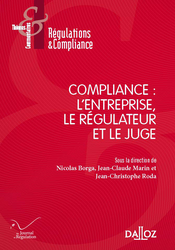
Référence complète : Baller, S., La gestion d'un audit de compliance ? Limites et perspectives, in Borga, N., Marin, J.-Cl. et Roda, J.-Cl. (dir.), Compliance : l'entreprise, le régulateur et le juge, Série Régulations & Compliance, Dalloz, 2018, pp. 143-146.
Lire une présentation générale de l'ouvrage dans lequel est publié l'article.
Consulter les autres titres de la Série dans laquelle est publié l'ouvrage.
May 22, 2018
Thesaurus : Doctrine

Référence complète : Du Pontavice, V., Expérience de compliance : mener un audit environnement, in Borga, N., Marin, J.-Cl. et Roda, J.-Cl. (dir.), Compliance : l'entreprise, le régulateur et le juge, Série Régulations & Compliance, Dalloz, 2018, pp. 99-102.
Lire une présentation générale de l'ouvrage dans lequel est publié l'article.
Consulter les autres titres de la Série dans laquelle est publié l'ouvrage.
April 3, 2018
Thesaurus : Doctrine

Référence complète : Dufour, O., L'IGF conclut à l'alignement des seuils d'audit sur Bruxelles, in Petites Affiches, avril 2018, n°66-67, pp.9-10.
Le rapport de l'Inspection générales des finances (IGF) commandé par le gouvernement sur l'utilité ou non de maintenir en France des seuils d'audit légal obligatoire plus bas qu'en Europe a été publié mi-mars. Il conclut à la nécessité d'aligner les seuils français sur ceux de Bruxelles. Un séisme pour la profession.
Les étudiants de Sciences-Po peuvent lire l'article via le Drive, dossier "MAFR - Régulation & Compliance"
Nov. 24, 2017
Thesaurus : Doctrine

Référence complète : Seidowsky, O., Audits logiciels et conformité digitale, in Études en l'honneur du Professeur Jérôme Huet. Liber amicorum, LGDJ - Lextenso, 2017, pp. 329-338.
Consulter une présentation générale de l'ouvrage.
Les étudiants de Sciences po peuvent lire l'article via le Drive dans le dossier "MAFR - Régulation".
Updated: June 19, 2012 (Initial publication: Nov. 15, 2011)
Thematic Cvs : C. Articles dans des publications juridiques collectives liés à la procédure (44)
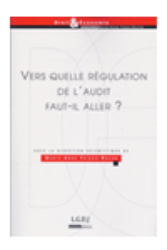
Nov. 4, 2011
Publications
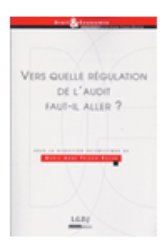
Référence complète : FRISON-ROCHE, Marie-Anne (dir.), Vers quelle régulation de l’audit faut-il aller ?, coll. "Droit et Economie", LGDJ, 2011, 89 p.
La Commission européenne a publié en octobre 2010 un Livre Vert sur la politique de l’audit, pour lui faire jouer un rôle de prévention des crises financières sur les marchés, en injectant notamment plus de concurrence sur le marché de l’audit. L’ouvrage vise à dégager les liens qui gouvernent l’avenir de l’audit dans son rapport désormais établi avec la régulation financière et ceux contestés avec la concurrence. Puisqu’il s’agit toujours d’élever l’audit vers davantage de qualité, des propositions sont faites dans ce sens, lesquelles peuvent prendre d’autres voies.
Lire le sommaire de l'ouvrage.
Lire l'avant-propos de l'ouvrage.
Lire l'article de Marie-Anne Frison-Roche : Lien entre l'avenir de l'audit et jeu concurrentiel
Lire la présentation de l'ouvrage ci-dessous.
Nov. 2, 2011
Publications
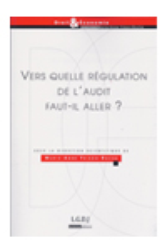
Référence complète : FRISON-ROCHE, Marie-Anne, Liens entre l'avenir de l'audit et jeu concurrentiel, in FRISON-ROCHE, Marie-Anne (dir.), Vers quelle régulation de l’audit faut-il aller ?, coll. "Droit et Économie", LGDJ, 2011, p.27-41.
L’histoire européenne montre qu’au regard du jeu concurrentiel, la concentration n’est pas un problème en soi, le droit de la concurrence ne se saisissant pas des structures mais des comportements. En effet, l’auditeur n’est pas un agent "systémique", il est un agent "crucial" et en cela, il relève de la régulation. Le jeu concurrentiel est auto-régulé par l’opposition des intérêts divergents entre les agents. La configuration de l’audit est autre, puisque l’auditeur est au service du marché et n’est pas en opposition avec celui qui requiert ses services. Il faut donc penser l’audit en dehors du jeu concurrentiel, sauf à démontrer que par exception, le principe de concurrence sert la stabilité financière. L’audit doit plutôt être pensé en terme de régulation, puisqu’il s’agit de construire un marché européen de l’audit, sous-jacent au marché intérieur européen financier, ce qui correspond au projet européen d’origine. Le critère de cette construction ne sera pas la mobilité mais la qualité
Accéder à une présentation plus générale de l'ouvrage.
Lire le résumé de l'article ci-dessous.

May 20, 2011
Organization of scientific events
Ce colloque est co-organisé par The Journal of Regulation, l'Ecole de droit de la Sorbonne et KPMG.
Il s'est déroulé à Paris, aux Bernardins.
Le thème abordé dans la journée a été le suivant : la Commission européenne a publié le 13 octobre 2010 le Livre Vert : Politique en matière d’audit: les leçons de la crise.
Prenant appui sur l’idée que les auditeurs jouent un rôle essentiel sur le bon fonctionnement des marchés, et que de ce fait un mauvais fonctionnement du système général de l’audit est un facteur de crise financière, le Livre Vert recherche des solutions de régulation de l’audit dans le comportement de l’auditeur, son choix par l’entreprise, sa mission, mais aussi la structuration du marché de l’audit, afin de conforter la stabilité financière des entreprises et des marchés.
Ces pistes sont ici éprouvées dans chaque direction ouverte par ce document majeur, qui servira de base à des textes structurants. Participent à ce colloque aussi bien des professeurs, des professionnels ou des régulateurs.
Les travaux résultant de ce colloque ont été publiés.
May 20, 2011
Conferences

May 16, 2011
Interviews
Jan. 6, 2011
Publications
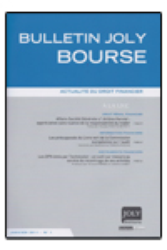
Référence complète : FRISON-ROCHE, Marie-Anne, Les présupposés du Livre Vert de la Commission européenne sur l'audit, Bulletin Joly Bourse, janvier 2011, p.47-54
Le Livre Vert de la Commission européenne publié le 12 octobre 2010, consacré à l’audit est construit sur des présupposés qu’elle n’ouvre pas à la discussion.
Ainsi, sous prétexte que l’audit des comptes a une influence déterminante sur les marchés, elle en conclut que l’entreprise d’audit est de nature systémique si elle est de grande taille et doit être traitée avec la même prévention qu’implique le risque de faillite, ce qui justifierait la déconcentration du marché de l’audit.
Mais l’auditeur n’est systémique qu’au sens positif en tant qu’il est influent et non pas au sens négatif au sens où sa défaillance serait contagieuse. Donc, on ne doit pas le traiter par un régime analogue à celui appliqué aux banques et notamment pas affaiblir les agents puissants. Au contraire, la concurrence conduirait l’auditeur à moins bien résister à la pression des dirigeants soumis par la loi au contrôle. Il faut donc non pas de la concurrence mais de la régulation à long terme.
Feb. 14, 2007
Thesaurus : Doctrine
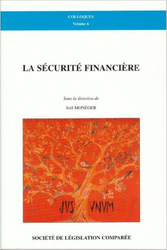
Référence complète : Schmidt, D., La crédibilité de la gestion des comptes des entreprises : le droit français,in Monéger, J. (dir.), La sécurité financière, Société de législation comparée, coll. "Colloques", vol.6, 2007 , p. 35-40.
Lire la présentation de l'ouvrage dans lequel l'article à été publié.
Les étudiants de Sciences po peuvent lire cet article via le drive en allant dans le dossier "MAFR - Régulation"
